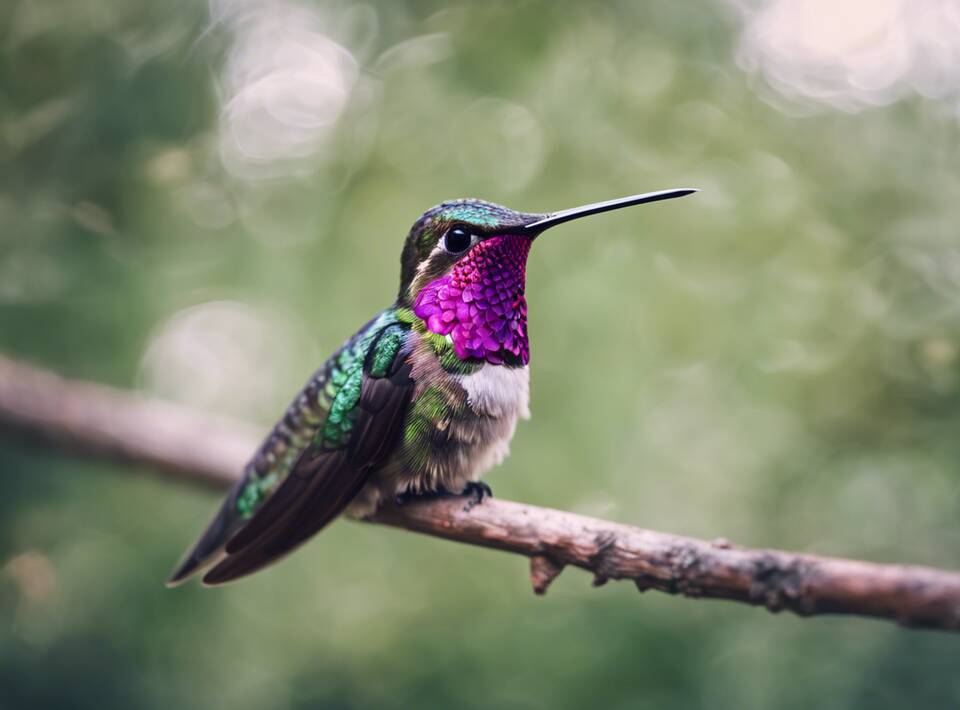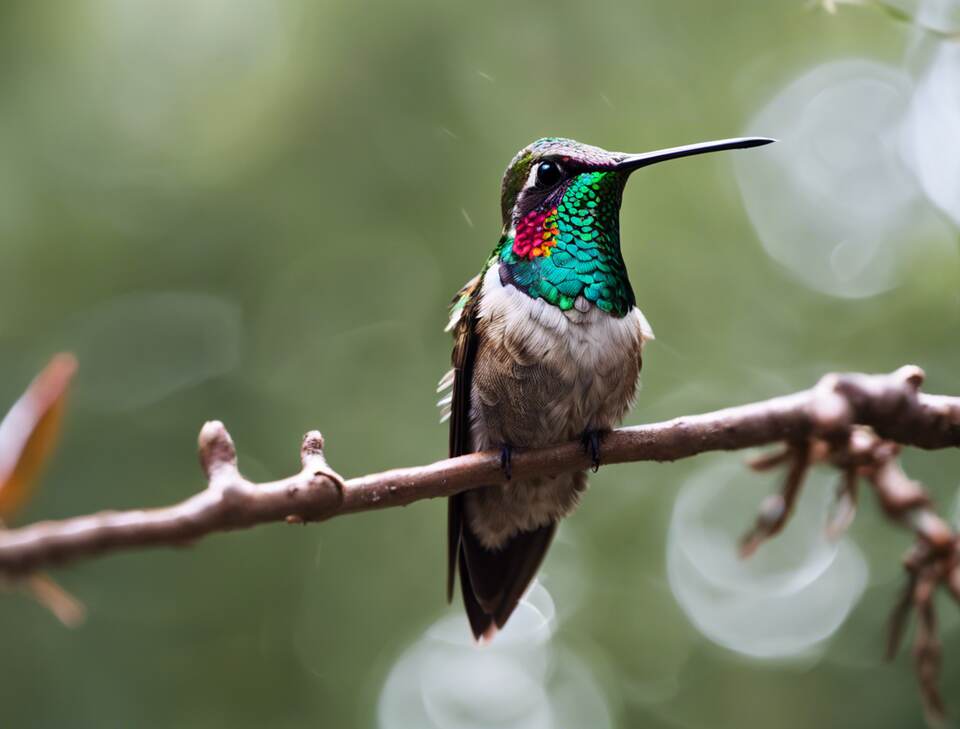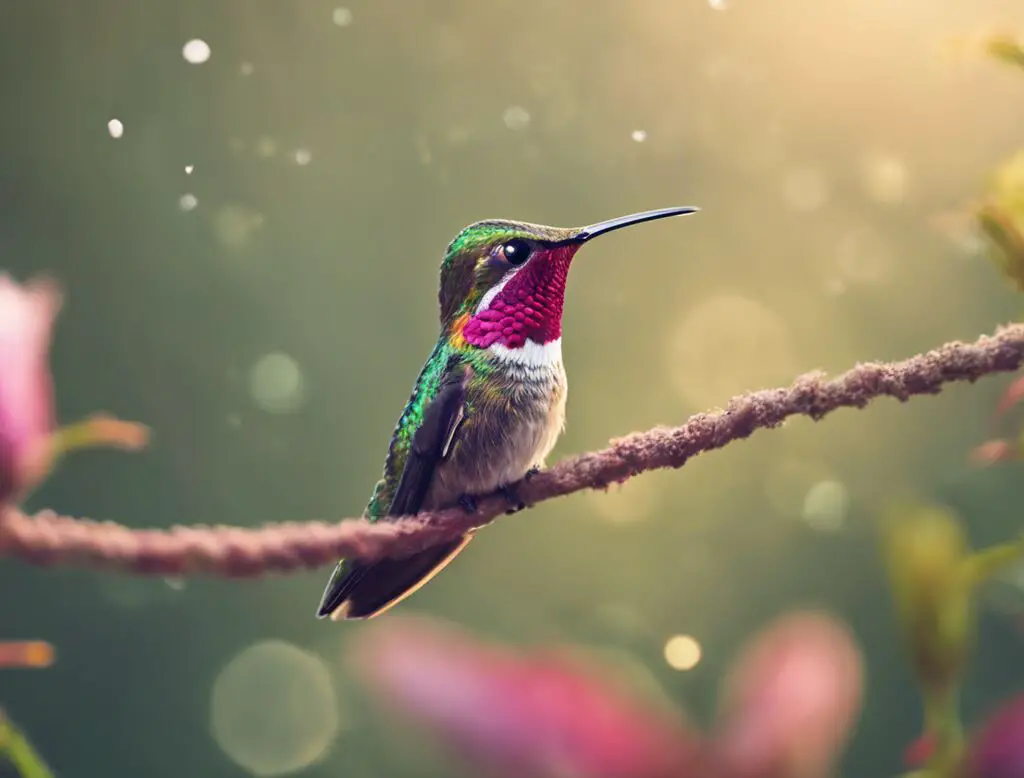Humans often find themselves intrigued by the smallest of creatures, and hummingbirds are no exception. These tiny, colorful birds are known for their swift movements and unique ability to hover in mid-air. However, one question that often arises when discussing hummingbirds is whether they sleep. Let’s explore this fascinating topic to uncover the mysteries behind hummingbirds and their sleeping habits.
Table of Contents
Do Hummingbirds Sleep?
Understanding Hummingbirds’ Behavior
Hummingbirds are incredibly active creatures, constantly darting from flower to flower in search of nectar to fuel their high metabolism. Their rapid wingbeats allow them to move swiftly, often compared to the buzzing sound of a hum. Despite their tireless energy throughout the day, hummingbirds do need to rest and recharge like all living beings.
Yes, hummingbirds do sleep, but their sleep patterns differ from those of humans. These tiny birds enter a state of torpor, a deep sleep-like state that allows them to conserve energy. During torpor, a hummingbird’s metabolic rate slows down significantly, and its body temperature drops to conserve energy. This unique adaptation helps hummingbirds survive the night when food sources are scarce and temperatures drop.
Hummingbirds’ Sleeping Habits
Hummingbirds typically enter torpor at night, finding a safe and sheltered spot to rest. They may perch on a branch or within dense foliage to sleep, staying hidden from predators. During torpor, hummingbirds are unresponsive and appear almost lifeless, which helps them avoid drawing attention to themselves while vulnerable.
Torpor vs. Regular Sleep
Unlike regular sleep, torpor is a much deeper state of rest for hummingbirds. While in torpor, hummingbirds can quickly awaken and resume normal activity if disturbed. This ability to enter and exit torpor rapidly allows hummingbirds to conserve energy efficiently without compromising their survival instincts.
Environmental Factors
Environmental factors play a significant role in hummingbirds’ sleeping habits. Cool nights or periods of food scarcity can trigger torpor in hummingbirds, prompting them to enter this energy-saving state. By adjusting their metabolism and body temperature, hummingbirds can adapt to changing conditions and ensure their survival during challenging times.
Hummingbirds do sleep, but their unique sleeping habits set them apart from other birds. Entering a state of torpor allows hummingbirds to conserve energy and survive harsh environmental conditions. Understanding these fascinating creatures’ behaviors sheds light on the resilience and adaptability of hummingbirds in the wild. Next time you spot a hummingbird hovering gracefully in your garden, you’ll know that even these tiny marvels of nature need their rest to thrive.

The Sleep Patterns and Habits of Hummingbirds
Hummingbirds are fascinating creatures known for their vibrant colors, agility in flight, and unique feeding habits. These small birds have captured the curiosity of many due to their remarkable abilities. One common question that arises when discussing hummingbirds is whether they sleep or not. Let’s delve into the intriguing world of hummingbird sleep patterns and habits.
Hummingbird Sleep Behavior:
Hummingbird sleep patterns differ from those of humans and many other animals. Due to their high metabolism and energy requirements, hummingbirds have developed a unique way of resting. Unlike humans who have long periods of deep sleep, hummingbirds enter a state of torpor during their rest periods.
What is Torpor?
Torpor is a deep sleep-like state that allows hummingbirds to conserve energy. During torpor, a hummingbird’s metabolic rate slows down significantly, almost to the point of appearing lifeless. This state helps hummingbirds survive the night when food sources are scarce and temperatures drop.
Do Hummingbirds Sleep?
Yes, hummingbirds do sleep, but their sleep patterns are quite different from what we are accustomed to. Hummingbirds typically enter torpor at night, reducing their energy consumption by as much as 95%. This adaptation allows them to save energy for essential functions like maintaining body temperature and brain activity.
How Long Do Hummingbirds Sleep?
Hummingbirds don’t get regular sleep like humans. Instead, they enter a deep sleep state called torpor at night. During torpor, their body temperature drops significantly, and their heart rate slows down. This special state helps them conserve energy because their high metabolism and tiny bodies require a lot of fuel.
The length of torpor depends on the season. Hummingbirds typically sleep from dusk until dawn, which can last around 12 hours depending on the time of year. This extended sleep period ensures they have enough energy for their active lifestyle, which involves hovering in mid-air and consuming large amounts of nectar.
Where Do Hummingbirds Sleep?
Hummingbirds select safe and sheltered roosting spots to spend the night. They often choose dense foliage or branches high above the ground to protect themselves from predators. These locations provide security and comfort for the birds during their resting period.
The Importance of Sleep for Hummingbirds
Sleep is essential for all living beings, including hummingbirds. Adequate rest allows hummingbirds to recharge their energy reserves, repair tissues, and consolidate memories. Without proper sleep, hummingbirds would struggle to maintain their daily activities and may face health issues.
Observing Hummingbird Sleep Patterns
While it may be challenging to observe hummingbirds during their sleep due to their quick and secretive nature, researchers have used innovative techniques to study their sleep patterns. Through the use of specialized equipment and observation methods, scientists have gained valuable insights into how hummingbirds rest and conserve energy.
Hummingbirds do sleep, but their unique sleep behavior sets them apart from other birds and animals. Their ability to enter torpor enables them to survive in diverse environments and adapt to challenging conditions. By understanding and appreciating hummingbird sleep patterns, we can gain a deeper insight into the fascinating world of these extraordinary creatures.

Conclusion
In understanding the mysterious world of hummingbirds and their fascinating behaviors, uncovering the truth behind whether they sleep or not sheds light on their remarkable adaptations and survival strategies.
These tiny, energetic birds do indeed sleep, but in a way that differs from many other species. Their unique sleep patterns, characterized by brief periods of deep rest, hovering in a state of torpor, and the ability to manage their energy levels exceptionally, showcase the brilliance of nature’s design.
By delving into the sleep habits of hummingbirds, we gain a deeper appreciation for these avian wonders and the intricacies of the natural world. May we continue to marvel at the beauty and complexity of these feathered jewels that grace our gardens and skies with their presence.



